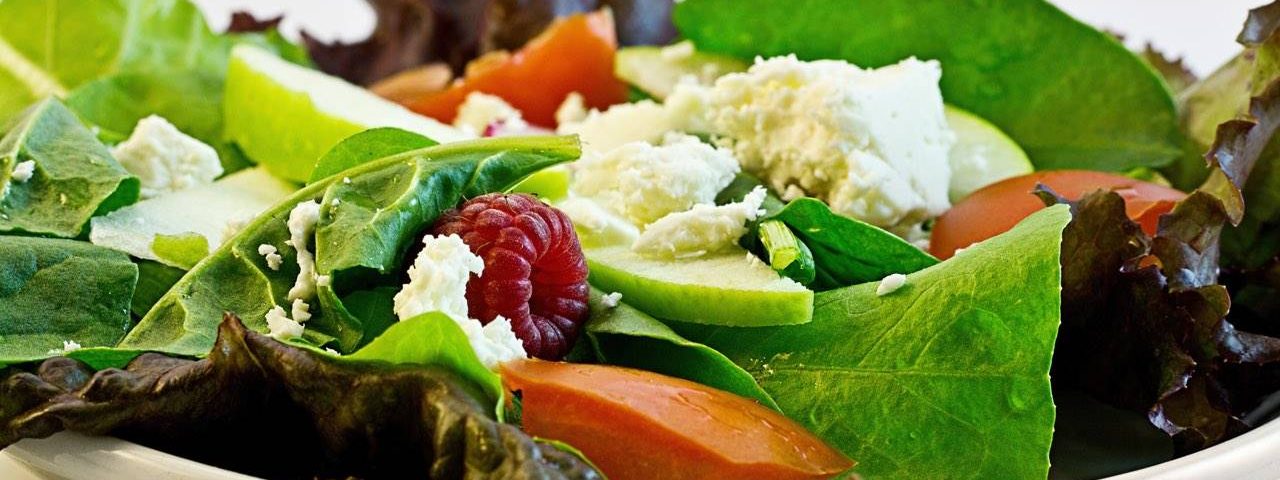 It’s tried and true: eating a well-balanced diet keeps you healthier longer. This mantra holds up when it comes to your eyes, too. The first step to ensure good eye health is looking at the food on your plate. Your diet should be high in fruits and vegetables and low in saturated fats and sugar. For a strong, eye-health specific diet, there are certain nutrients to watch for like omega-3 fatty acids, lutein, zinc, beta-carotene and vitamins A, C, and E (ACE). When you get an appropriate amount of these vitamins and minerals, you can avoid being one of the 25 million people worldwide affected by age-related eye problems like macular degeneration and cataracts.
It’s tried and true: eating a well-balanced diet keeps you healthier longer. This mantra holds up when it comes to your eyes, too. The first step to ensure good eye health is looking at the food on your plate. Your diet should be high in fruits and vegetables and low in saturated fats and sugar. For a strong, eye-health specific diet, there are certain nutrients to watch for like omega-3 fatty acids, lutein, zinc, beta-carotene and vitamins A, C, and E (ACE). When you get an appropriate amount of these vitamins and minerals, you can avoid being one of the 25 million people worldwide affected by age-related eye problems like macular degeneration and cataracts.
The Best Sources
In Vegetables
-
Great vegetables for eyes start with green, leafy vegetables like spinach, kale and collard greens. Dark greens are a great source of antioxidants, vitamins, beta-carotene, lutein and zeaxanthin. You can use them in salads, blended in smoothies or bake the leaves into chips.
-
Bell peppers are not only fun and colorful, but contain 100 percent of the recommended daily value for both vitamins A and C.
-
Carrots aren’t the end-all-be-all of eye health we were once told, but they do contain vitamin A — an essential vitamin for eye health. And who doesn’t love a snack you can pack?
-
Those little tree-shaped veggies we know and love — broccoli — contain beta-carotene, lutein and zeaxanthin. Add them to omelets, or toss them in your favorite pasta dish.
-
Corn is our last veggie of choice. It is not only delicious, but contains some lutein and zeaxanthin. The amounts of these minerals increase with cooking time, so add them to chilis, soups and casseroles.
In Fruits
-
Citrus fruits, especially oranges, are rich in vitamin C and help regenerate other important antioxidants like vitamin E.
-
Blueberries are antioxidant powerhouses. They are delicate, so it is good practice to wait to wash them when you are ready to eat them. You can add them to yogurt, cereal, or simply pop them in your mouth for a delicious burst of goodness.
In Meat
-
Fatty fish, like salmon and tuna, are great for your eyes as they contain large amounts of omega-3s. The fatty acids help protect the tiny blood vessels in the eyes and stave off eye degeneration typically caused by aging. Bonus points if you broil a rich, pink salmon fillet and place over a delicious spinach salad.
-
Turkey is another great choice. It is loaded with cataract-preventing zinc and B-vitamin niacin.
In Non-Meat Protein
-
Eggs, nuts, and beans are the target in this group. When shopping for eggs, you should know that not all eggs are equal in nutritional value. Eggland’s best, for example, contain 38% more lutein, 10 times the amount of vitamin E and more than double the omega-3s than regular eggs.
-
Consider trying Chia seeds as well. They house more omega-3s than flax or salmon, more calcium than a glass of milk, and more antioxidants than blueberries. Unlike flax seeds, chia seeds don’t need to be ground to reap their nutritional benefit. You can eat them in your yogurt or toss in your morning smoothie.
Remember, the best way to ensure your eye health is in tip-top shape is to get your annual exam with the eye care specialists at Complete Eye Care. Call today to make an appointment.
Our doctors at Complete Eye Care Newcastle are experts with vitamins and minerals needed for your eye health. Schedule your appointment today to find out exactly what vitamins are essential for you and your eyes. Call us at 405-387-4884 to schedule today! We are located on 918 NW 32nd Street in Newcastle, OK.

We are closed from 12:30pm to 1:30pm for lunch daily.